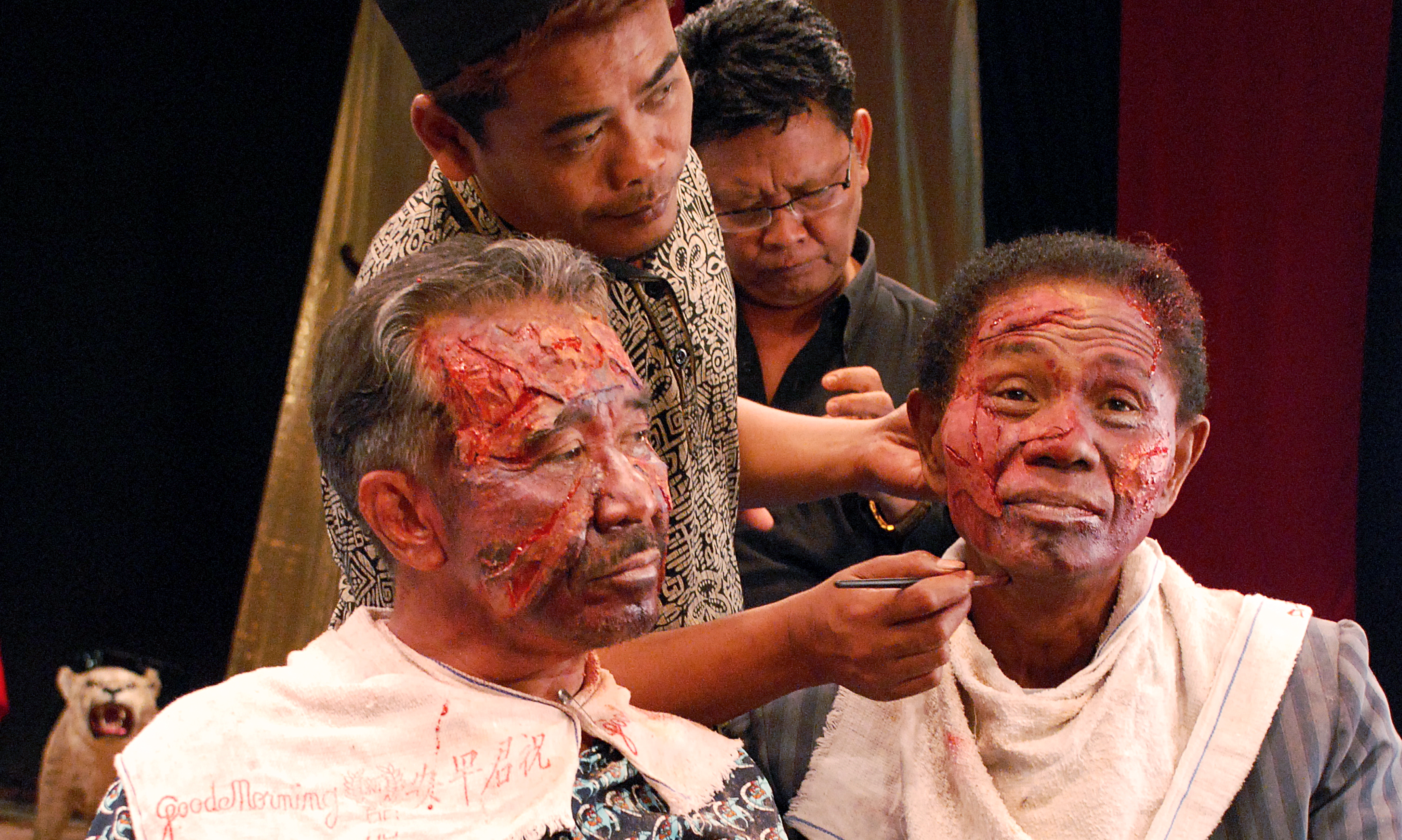
Call it the Shoah method: show the psychological aftermath of a tragedy for a long enough amount of time, and you won’t be able to separate your own opinion of a film’s merits as a film-object from the treatment of the subject at hand. In a way, form takes a backseat to content. As massively important and impressive as Claude Lanzmann’s documentary is, its style is deliberately dry. Such is not the case with Joshua Oppenheimer’s The Act of Killing, which clocks in at one-fifth of Shoah‘s running time, and, thanks to its decidedly strange conceit, indulges in extravagant generic excess.
Back in 2001, Oppenheimer and his crew travelled to Indonesia to document the ongoing aftermath of an infamous spree of killings that took place in 1965-66. This lead to a meeting with Anwar Congo, a notorious death squad leader and the subject of this film. They would boast of their killings, and invited Oppenheimer to film re-enactments that they would stage and perform. This factoid alone should should give you some insight into the twisted mindset of the protagonists and the toxic environment in which it was allowed to grow. The bulk of the film is dedicated to showing just how malignant the corruption in Indonesian politics has become over the last fifty years. To draw another parallel with Shoah, Oppenheimer once described Indonesia as “[…]Nazi Germany 40 years after the Holocaust if the Nazis were still in power.”
The Act of Killing plays like the end result of a particularly grim thought exercise. Clearly Congo is aware that there is a relationship between the movies and real life. After all, this is someone who by their own admission sought to emulate mobsters and cowboys while murdering people in cold blood. An idea run through a cinematic filter, then carried out in real life. As the film goes on, it seems as if, for the first time in his life, Congo realizes that this film/life relationship is mutualistic, that a straight line can be drawn between an occurrence in fiction to a concept in reality. His arc in this film is basically fiction informing real life informing fiction informing real life. The power of movies and such, but not in the way you’d expect. There’s a moment you think where real life informs fiction again, and that Congo is playing to a camera, but then you realize that involuntary bodily reactions don’t lie, and that a lot of the film’s crew chose to stay anonymous, and that this is a real thing that happened and that is still happening. it makes what you have just seen that much more incredible, both literally and figuratively.
Though the film sometimes busts out the cheaper tricks in the documentary playbook (nothing says “banality of evil” like an ex-death squad leader looking bored at the mall), but Oppenheimer keeps an even keel throughout, mostly letting his subjects (and the camera) do the talking. He also shows to solid genre chops, and an eye for big, sweeping power shots, complex compositions and evocative lighting. In a strange way, it’s in these moments of genre pastiche that we get a deeper sense of the subjects, because they are, for the most part, playing self-idealized versions of themselves. The true genius of The Act of Killing is how it alternately uses fact and fiction as both a means and an end, and how it acts as a synecdochic window into a vast, crooked network of sickness and sycophantry.
—
The theatrical cut of The Act of Killing is available to stream on Netflix Instant and Amazon Instant, and the DVD and Blu-ray (including the Director’s Cut) are available on Amazon.
Directed by Joshua Oppenheimer, Christine Cynn, and Anonymous; 115 minutes (theatrical), 159 minutes (extended).



 Derek
Derek
 Isabelle
Isabelle